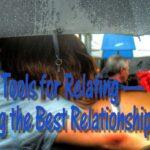- Bring Wisdom — 12 Ideas
- About Anxiety — 12 Ideas
- About Taking Action — 12 Ideas
- About Self Actualizing — 12 Ideas
- About Results — 12 Ideas
- About Mind Movies — 12 Ideas
- About Knowing Yourself — 12 Ideas
- About Being Chained – 12 Ideas Series
- About I‑am-ness — 12 Ideas
- About Happiness – 12 Ideas
- About No Past – 12 Ideas
- About Embodiment — 12 Ideas
About Being Chained – I must take full responsibility for my choices, decisions, and directions. Just as there is no one to compare myself to, there is no one is to blame for any choice I have ever made. Embracing the concept of being chained to who I actually am can lead to profound personal growth.

This Endless Moment
An excellent guide to life and living.
Learn to focus your attention of who you really are.
Purchase all formats from Amazon
Purchase digital versions
(Apple, Nook, Kobo, etc.) from this page
Understanding the Impacts of Being Chained on Personal Growth
Being chained is a state of mind that reflects our choices and perceptions.
Back at point 1, I suggested the idea that you are the centre of your own universe. I wrote about “getting” that how we relate to others is sort of myopic. We think we are seeing clearly, but forget the glasses on our face.
Being chained can often feel like a burden, but it is also an opportunity for growth. People often misinterpret the concept of being chained as a limitation.
I’d like to suggest another perspective for this idea, and it goes like this:
Every single aspect of what is happening in your life right now is the result of the choices you have made.
100% of the time.
Who you are, where you are, and how you are, it’s all determined by you, moment by moment.
If you want something different, you must start from where you are.
This seems logical, until you unpack the implications.
We have been trained since birth to look outside of ourselves for both satisfaction and someone to blame.
Starting from where you are means accepting responsibility for the choices you made, and are making to get to this state — to this moment — to this condition.
Let me say it this way: this approach is not magical, not indirect, and not superficial.

Many people think that therapy is about “making things all better,” as in “no problems.”
Only one client has ever said this aloud, in New Age-speak, when she said, “I need my affirmations fixed. I’m not getting what I want.”
But many clients expect that doing therapy is going to “easily fix the world.”
They think that their internal tightness and emotional issues are externally caused.
I insist that how you are is how you are.
If your personality tends toward cheery, that’s how you are. If toward melancholy, that’s how you are. These tendencies are not caused by externals — rather they colour our default response to externals.
The hard work of life is learning to accept that “the way you are is the way you are,” and then working from there.
Once you get this small idea, the doors of opportunity are thrown open.
Most people spend their lives trying to change the world, and trying not to be themselves. We insist that life is far better lived through acceptance.
By acceptance I do not mean submission. I mean what the word means. I start from here, from right now, and accept that
“I am where I am and I know what I know based solely upon what I have chosen to learn, to absorb, to assimilate and to find within myself.”
Notice the “to find within myself.” That’s the acceptance of the baseline of your self part. As I said above we all have certain overarching ways of dealing with ourselves and the world. Call them predilections. Defaults. Yet, despite this, there is freedom in the following:
I may have a predilection to act in a certain way, but I always have complete freedom of choice regarding my next action.
Blaming your genes, your parents, your “Uncle Louie,” the system, or anything else for who you are and where you are is a waste of your time. Even if by some stretch something in the past, in your childhood, “caused you” to be a certain way, and even if you have been acting that way for decades, nothing compels you to behave that way this time.
Nothing.
Most people are resistant to shifting their way of being. They’ve perfected their approach over years, and quickly turn suggestions to the contrary upside down.
For example, a person might lean toward depression. I’ll suggest two things:
- accept that your nature is to lean toward depression, and
- as you feel that way, give yourself permission to feel it fully, for a limited time, say 15 minutes.
- Do what you need to do: wail, moan, cry, complain. Then, stop, and ask, “OK, now what do I need to do differently, this time, regarding this situation?” You then act.
One friend heard me describe this process. She discarded 2/3s of it, and thought I said, “Just stop doing it.” Yikes.
The reason she did this was:
- to defend her belief that she is, and always will be, depressed,
- to stay stuck until some magician comes along and permanently removes her depression,
- to resist consciously implementing her symptoms, and
- to stay stuck in behaviours that, in the past, have gotten lousy results.
So we repeat, endlessly: if you want to do your life differently, you have to:
- accept that how you are right now is how you are right now, and
- shift a behaviour in the direction you want to go.
This requires the assimilation of an entirely new way of seeing things.
I believe that everyone already has within them all of the tools, resources, and understandings necessary to be whole and to create excellence. The problem is that we have limited our choices in the extreme, have blocked ourselves from the innate knowledge of our selves, and have designed a picture of ourselves that is way too small.
Thus, the depressed person, above, focuses only on experiences that confirm her depressed-ness, and does what she does to stay within that small frame.
Our approach is to acknowledge that this, indeed, is “how things are, right now.” Fighting against what is, is a waste of time. Then, we open to door to doing “the next thing” (and the rest of life, one moment by one moment) differently.





